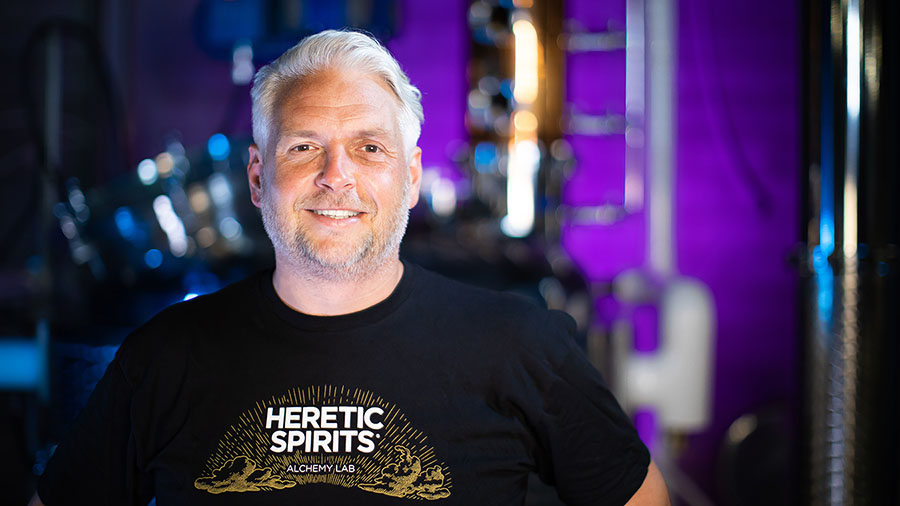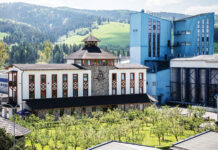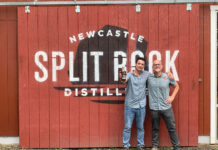
Five years ago, Scott Morrison had a vision. He wanted to open a distillery to make and sell high quality spirits. His background in branding and advertising combined with a passion for food and beverage gave him the critical skills to get his finished products into the hands of the consumer but making the spirits was still a gap in his tool belt. In his quest to make a good product, he sought educational opportunities like the multi-day whiskey workshops and breakout sessions at the annual distillery conferences. However, he knew he still needed assistance. He decided to bring in outside help.
Craft distillers today have an incredible list of demands and expectations on their shoulders, and no one has the expertise to do everything. Most distillery founders will bring a strategic strength to the business but, with so many facets of running a successful distillery, an outside consultant can be a great way to bolster missing experience. Fortunately, for small distillers getting started, distilling is a consulting-heavy industry with many experts available to help with everything from fermentation science, distillation cuts, barrel maturation models, blending, equipment sourcing, team development, safety, sales and marketing, compliance, cost accounting, distributor strategy, and even social media and public relations. Scott Morrison started to recruit very specialized experts from around the world who had the experience to help make him a world class product. One of the first distilling consultants he brought in was Brendan Wheatley of Plethora Brands (https://www.pb.company/).
Brendan is a distillery consultant who has been in the alcohol industry for over 23 years. He is an experienced, hands-on distiller who provides a wide variety of product development for rum, whiskey, liqueurs, and many other spirit types. Scott contracted Brendan to design and develop the Heretic Spirit brand’s gin and vodka, both of which are now award-winning. They continue to work together on a long-term aged whiskey and rum barrel maturation plan. Scott Morrison is very happy he brought in outside help. “We can only wear so many hats or know at so many things. Not to mention that avoiding costly mistakes can be as important as creating the right product. Save funds to get the right help and then stick with them. It can make the difference between a pipe dream and a viable business.”
Nancy Fraley, another well-known consultant in the distilling industry, is a freelance Master Whiskey & Rum Blender, International Consultant, and Professional “Nose” at Nosing Services. She has worked with some big-name craft brands including Wyoming Whiskey, Iron Root Republic, Joseph Magnus, J. Henry and Sons, Still Austin, and many others. Nancy believes the key to successful client-consultant partnership is developing a long-term relationship. “With long term clients, everyone becomes really good friends. When working together, it begins to feel like being part of the family. There is mutual respect and we’ve all grown really close. You feel part of the victory when the clients bring home gold. You feel a sense of pride. It’s rewarding to watch them grow and get better right alongside you.”
Richard Wolf of Wolf Consulting (https://www.wolfconsults.com/), another distilling industry veteran, also looks for those long-term relationships where all parties grow together. With decades in the beverage industry, Richard Wolf has held many leadership roles including as the Vice President/General Manager of Buffalo Trace/Sazerac. For the last twelve years, Richard has helped craft distillers as an advisor, spirits judge, and whiskey broker. Richard has worked with distillers of all sizes and offers advice for those bringing in outside experts and how to avoid inefficiency. “As one might do with one’s doctor, a distiller needs to be able to describe ‘where it hurts’. Identify the areas of the business that are broken or underperforming. Reach consensus about the scope of work to be performed. Pick a consultant that you are comfortable working with, both on a personal and business level. Also, as with choosing any team member, select a consultant that has complementary experience, skills, and knowledge versus your own.”
Bringing in a consultant to shore up the skill and experience gaps on your team can be a great way to accelerate a distillery’s growth, improve quality, increase profitability, or even expand distribution. This investment usually isn’t cheap so here are some tips on getting the most out of a consultant. When bringing someone on-site, there many ways to show appreciation for their time and expertise. No one is expecting to stay at a 5-Star hotel, but a nice, clean hotel can really help a person recharge and be ready to tackle the next day. Having a consultant sleep on a basement couch or in the garage doesn’t set them up for success. Another tip is to set expectations for the workday. Most consultants understand they work 24-7 and there will be long days, but setting a reasonable workday helps to prevent burn out. This is especially true when the consultant is taking work back to the hotel after everyone else goes home. Many times, traveling consultants are leaving behind a family so scheduling a 5pm “Family Check In/Facetime” can be a nice way to show appreciation for their time away from home. Dinner and drinks after a long day of work is always appreciated but keep the conversations casual and light. Setting up a dedicated workspace can make a consultant feel comfortable and ready to work. Scheduling production down-time and making people available for training along with “top-down” leadership support for the project can really pay dividends for all parties and avoid frustration.
On-site trips can be incredibly valuable but what happens when a consultant is not available to travel or there are travel restrictions? Sometimes remote training or conference calls can be a distiller’s only option for getting help. Coleen Moore of Dalkita (https://www.dalkita.com/) offers a wide variety of consulting to distillers from being the “Architect of Record” to design the entire distillery facility from the ground up, to specific building and fire code consulting, to optimizing the logical flow of distilling equipment. Like other consultants and 3rd party service providers, the Covid-19 pandemic has made on-site consulting and traveling a challenge. There are several educational resources for distillers to leverage such as webinars and on-line resources, but this often doesn’t customize to the distiller’s needs and almost never compensates the consultant/content creator for their expertise long-term. Coleen has developed a new hybrid technique for leveraging a consultant’s expertise while being customized for an individual distiller. Dalkita now offers hybrid online classes that are developed by subject matter expert consultants that include hours of one-on-one consulting for a flat fee. Topics such as “Tasting Success with Your Tasting Room” by distiller Mark A. Vierthaler and “Working Well with PR” by the distiller Maggie Campbell, give distillers virtual classes they can take at their convenience and the opportunity to connect with the consultants directly for questions throughout the lessons. Best yet, the revenue from the classes is shared with the consultants which can help when travel is not possible.
Five years after his dream began, Scott Morrison is now in full production with one of the fastest growing gin brands in Ontario, Canada. His award-winning spirits have been featured in local and national press with more and more stores picking up his now iconic Heretic Spirits label. He will be the first to admit that he couldn’t have done it without his outside consultants. As other distillers think about their next steps of how to grow, how to do an internal audit, or how to improve their product, maybe it’s time to consider bringing in the big guns.








